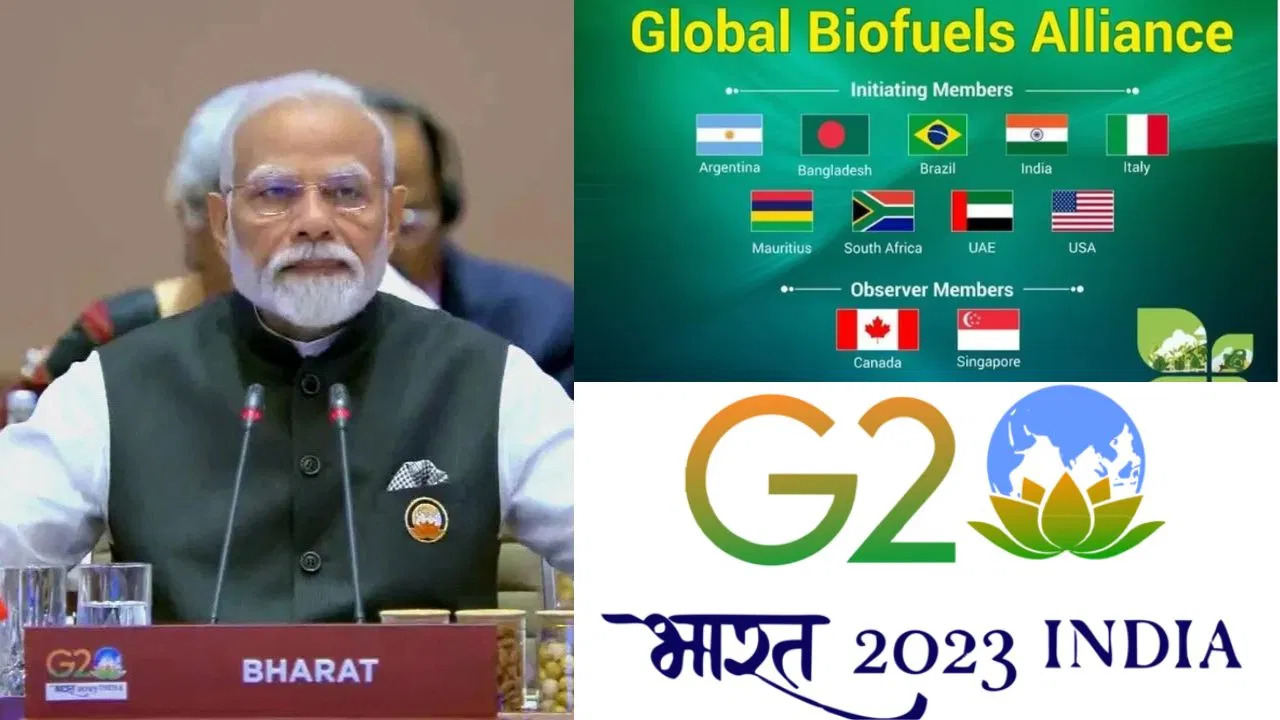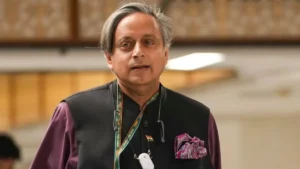Indian Prime Minister Narendra Modi announced the formation of the Global Biofuels Alliance (GBA) during the G20 Summit. The alliance includes more than 30 countries and international organizations, aimed at promoting the adoption of biofuels and expanding bioenergy access in emerging economies.
Environmental Significance
This announcement comes during a month marked by important environmental events, including the International Day of Clean Air for Blue Skies (September 7), International Day for the Preservation of the Ozone Layer (September 16), and World Environment Health Day (September 26). The G20 New Delhi Leaders’ Declaration also highlights the establishment of the Global Biofuels Alliance.
Action-Oriented Initiative
The GBA launch reflects India’s proactive stance as the G20 President and its representation of the ‘Voice of the Global South.’ The Ministry of Petroleum and Natural Gas emphasized the action-oriented nature of India’s positive agenda.
Key Members of GBA
The GBA consists of 19 countries and 12 international organizations. Key G20 member countries supporting the alliance include Argentina, Brazil, Canada, India, Italy, South Africa, and the US. Four G20 Invitee countries supporting GBA are Bangladesh, Singapore, Mauritius, and the UAE.
Additionally, eight non-G20 countries, including Iceland, Kenya, Guyana, Paraguay, Seychelles, Sri Lanka, Uganda, and Finland, are part of the alliance. International organizations such as the World Bank, Asian Development Bank, World Economic Forum, and others are also members.
Biofuel Production and Consumption
The GBA members are major producers and consumers of biofuels, with the USA, Brazil, and India contributing significantly to production and consumption. They collectively account for about 85% of biofuel production and 81% of ethanol consumption. The global ethanol market is predicted to grow at a CAGR of 5.1% by 2032, surpassing $162.12 billion by that year.
Objectives of the Alliance
The GBA aims to:
-
Promote Sustainable Biofuels: Support the development and deployment of sustainable biofuels globally.
- Capacity Building: Offer capacity-building exercises, technical support, and policy lessons-sharing.
- Virtual Marketplace: Create a virtual marketplace to map demand and supply, connect technology providers with end users.
-
Standards and Regulations: Develop and implement internationally recognized standards, sustainability principles, and regulations to incentivize biofuel adoption and trade.
Benefits for India
The GBA is expected to benefit India in several ways:
-
Global Strengthening: Enhance India’s global position and collaboration opportunities.
- Export Opportunities: Provide Indian industries with opportunities to export technology and equipment.
- Unlocking Bioenergy Access: Improve bioenergy access in emerging economies and create new business opportunities.
-
Low Carbon Energy: Contribute to low-carbon energy goals and reduce import dependency.




 Which Lake is known as the Jewel of Udai...
Which Lake is known as the Jewel of Udai...
 Which is the Largest Banana Producing St...
Which is the Largest Banana Producing St...
 Shashi Tharoor Conferred Honorary D.Litt...
Shashi Tharoor Conferred Honorary D.Litt...








